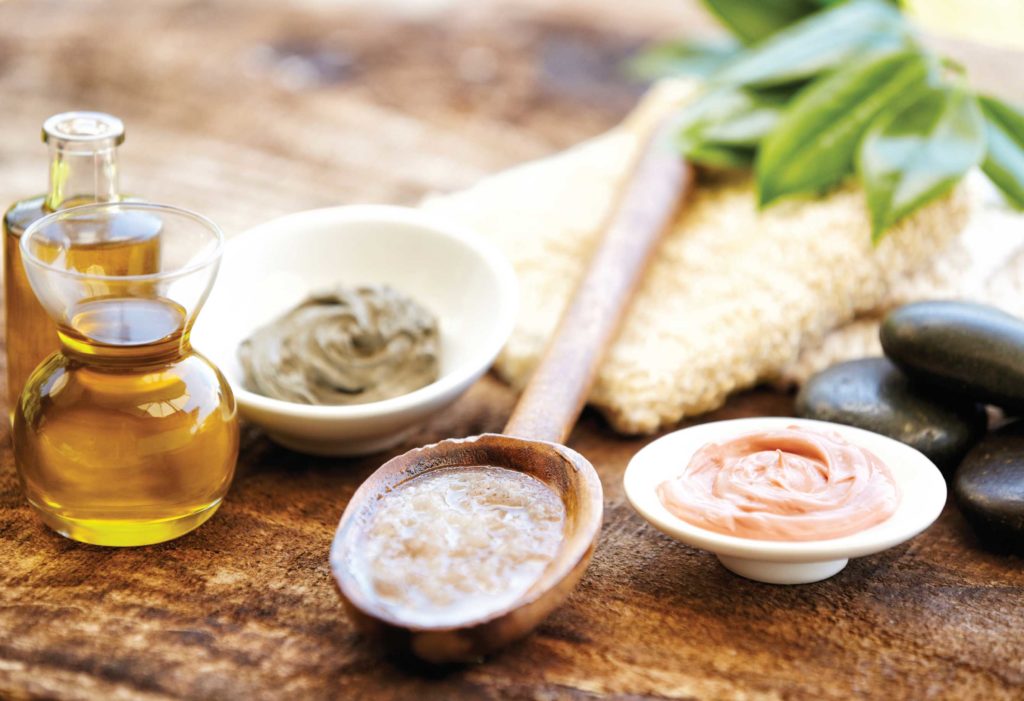Literally, the phrase “Natural Skincare” would mean care for the skin using products with ingredients that come from flowers, herbs, roots, and essential oils. Manufacturers generally combine these with natural agents like preservatives and surfactants. The traditional definition of natural skincare depends on ingredients sourced from plants without artificial compounds to preserve integrity.
For some consumers, natural means homemade or household remedies. Nowadays, the term has become phenomenal particularly for beauty and personal care merchandise. Yet, are the commodities natural according to assertions made by various brands? For more than 10 years, many companies have claimed making and selling “100% all-natural commodities” to the public. This may not be the case after all.
Skincare = Natural
As the saying goes, “Beauty is over and above skin deep.” The average female or male applies at least 10 separate skincare formulas on the body each day. If this is the case, we take in around 130 chemical compounds daily because our bodies serve more as sponge instead of effective barrier.
Manufacturers as well as the Food and Drug Administration insist the ingredients are safe in small doses. How can the dosage remain small when a woman puts on makeup, spray perfume, and rub moisturizers or lotions several times in 24 hours? We’ll never know how these chemicals will affect us over time.
Most of the substances referred to have known risks such as Phthalate acids widely utilized as plasticizers. We find this type of hormone disruptor in manmade fragrances linked to infertility, genetic defects, sperm damage, and other possible conditions.
The drawback with the description “natural” is the lack of legitimate definitions. Our only benchmarks for classifying a commodity as natural is purely voluntary. Many enterprises falsely claim their goods as innate provided they use natural elements which are toxic. In short, these producers maintain their merchandise as natural regardless of the contents. We can’t just trust these claims and presume a product is natural because we purchased it an organic retail outlet.
Natural or Not?
We see labels in cosmetics, soap, or shampoo that says “Organic”, “Natural”, “Eco-Safe”, or “Non-Toxic.” With these tags, consumers are made to believe that ingredients were tested for safety. Unlike drugs (medicines), the FDA does not conduct reviews of cosmetic items or skincare remedies. Some manufacturers make misleading or vague statements regarding eco/health benefits.
This approach is plain greenwashing or using a marketing strategy to hype a company’s commodities, services, activities, and policies as environmentally-sound. It is an act of dishonesty since there is no scientific data to back up their claims. This scenario leaves consumers wondering whether the cologne, lipstick, or cream they use is safe.
As mentioned earlier, our skin is not an obstacle. It enables tiny particles to enter the bloodstream that impacts our physiology. What eventually happens if our bodies are exposed to microscopic amounts of synthetic substances for many years? Hence, we should remain aware of false or misleading claims regarding natural skincare.
Descriptions that Misinform Consumers
One is “environmentally-safe” or “eco-friendly”. Government agencies do not have official parameters for these terms. In fact, the Federal Trade Commission considers the phrase as unclear to have significant meaning.
Another word is “hypoallergenic”. The FDA says it does not compel manufacturers to conduct tests or present proof that medical professionals tested certain products. The public must identify organizations making the allegation and not only the company that manufactures that item.
Be careful with the term “fragrance-free.” A product may contain essential oils and not artificial scents. However, the ingredients may also include doubtful substances such as DEA, a viscous and organic chemical or SLS sulfates as well as artificial coloring. Free from fragrances do not essentially mean there is no smell in that item.
“Non-toxic” does not imply not poisonous or not harmless. It only says the product is a safer option compared to dangerous ingredients. It suggests users will not incur negative side-effects although there are no official government standards for this term.
Finally, the word “NATURAL” promotes the products as derived from nature. Unfortunately, this is far from the truth. The manufacturer states the commodity is a hundred percent natural but contains stabilizers, artificial surfactants, and fragrances.
My advice for consumers is to read labels carefully and check out the list provided by the Natural Products Association or credible organizations that promote natural commodities.


Leave a Reply